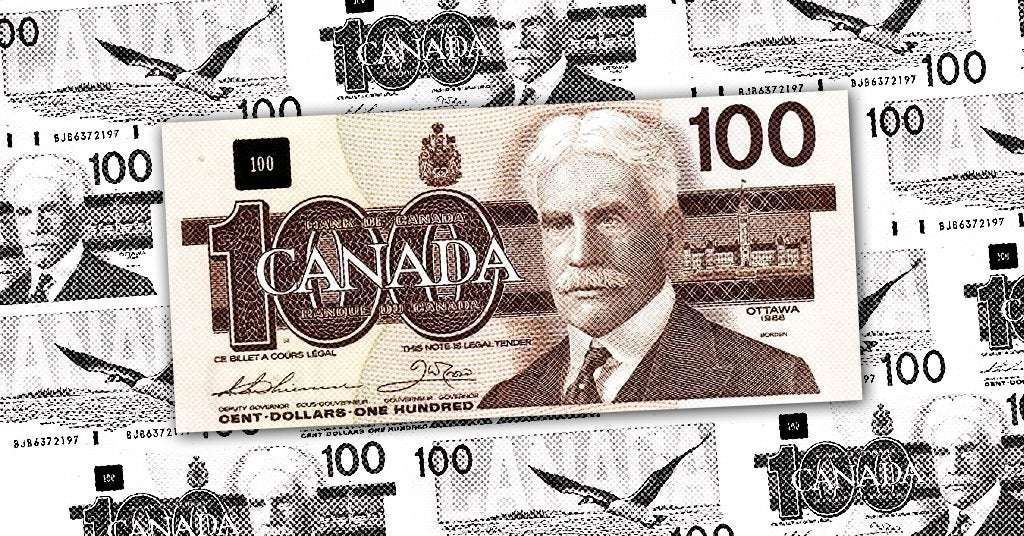45 Richest Canadians Are Now Wealthier Than The Economies of Half of Canada’s Provinces and Territories
Canada’s billionaires now control more wealth than the economies of four Canadian provinces and three territories combined.
According to an annual “billionaires insights” report from Swiss wealth management firm UBS, Canada’s 45 billionaires saw their wealth rise to $153.1 billion in 2018 — that’s up 3% from 148.5 billion in 2017.
To put those numbers into context, figures from Statistics Canada show Canada’s 45 billionaires have a pile of wealth that’s bigger than the GDP of New Brunswick, Prince Edward Island, Nova Scotia and Newfoundland and Labrador combined ($112.2 billion).
That’s also bigger than the GDP of Nunavut, Yukon and the Northwest Territories combined ($10.5 billion).
Even the economies of Manitoba ($67.4 billion) and Saskatchewan ($86.6 billion) pale in comparison to the collective wealth Canada’s 45 richest people.
Although the raw number of Canadian billionaires dropped from 46 to 45 in 2018 due to the passing of mining baron Peter Munk, Canada’s billionaire class nonetheless saw its collective wealth increase by $4.6 billion.
Many Canadian workers were not so fortunate during the same period.
Although Canadian billionaires saw their collective wealth rise 3% between 2017 and 2018, Canadian workers saw their collective wages rise only 1.9%, although a closer look at those numbers suggest regional factors are at play — Calgary and Edmonton saw wages increased between 0.6% and o.7% during the same period.
According to Canada’s Parliamentary Budget Officer, a 1% tax on net wealth above $20 million alone would generate nearly $70 billion in new revenue over 10 years.
Experts note that revenues at that scale would be enough to cover the costs of major programs like pharmacare, postsecondary education, affordable housing and other investments that would further reduce the costs of living for working Canadians.

Dartser on November 14th, 2019 at 17:31 UTC »
One of those is Huang Chulong who is a Canadian Citizen but lives in China and most of his business is over there as well. The top lists of richest people are a little off sometimes
Edit: also in the 2nd richest spot, Joseph Tsai who while being a Citizen lives in hong kong and makes all his money there
cipherdelic on November 14th, 2019 at 16:02 UTC »
Adam Smith, the father of free market economics, put it best in 1776:
" The necessaries of life occasion the great expense of the poor. They find it difficult to get food, and the greater part of their little revenue is spent in getting it. The luxuries and vanities of life occasion the principal expense of the rich, and a magnificent house embellishes and sets off to the best advantage all the other luxuries and vanities which they possess. A tax upon house-rents, therefore, would in general fall heaviest upon the rich; and in this sort of inequality there would not, perhaps, be anything very unreasonable. It is not very unreasonable that the rich should contribute to the public expense, not only in proportion to their revenue, but something more than in that proportion. "
"The masters, being fewer in number, can combine much more easily; and the law, besides, authorizes, or at least does not prohibit their combinations, while it prohibits those of the workmen. ... In all such disputes the masters can hold out much longer. A landlord, a farmer, a master manufacturer, a merchant ... could generally live a year or two upon the stocks which they have already acquired. Many workmen could not subsist a week ... In the long run the workman may be as necessary to his master as his master is to him; but the necessity is not so immediate."
LibertyPrimeR6 on November 14th, 2019 at 15:03 UTC »
Gonna trickle down any minute now